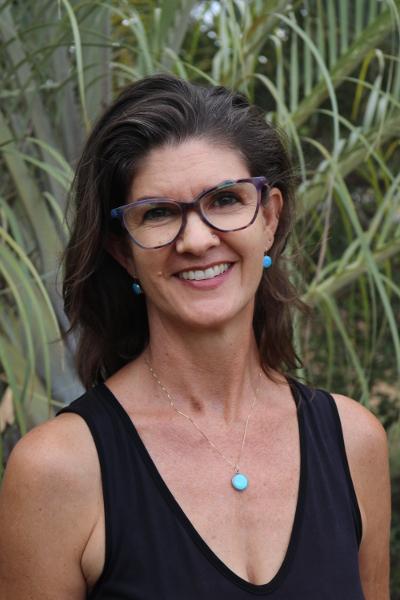As a therapist, one thing I see that keeps unbalanced relationships alive is unexamined loyalty. Loyalty can be such a beautiful gift in relationships. We often think of a “true friend” as someone who is loyal to us. They will support us in hard times and love us even when we make mistakes. That’s beautiful. But loyalty can slip into unhealthy enabling when we inadvertently support someone’s imbalance. For example, many years ago before I was training to be a therapist, I had a friend who was very judgmental and negative. Anywhere we went she would criticize the people around us. I always participated in the criticism because I thought of it as a game for her, but I would feel sick in my body after I left her company. I started to learn about Buddhism at that time, and I started to practice a loving kindness meditation. The more I practiced that meditation, the more it resonated for me. I vowed to practice loving kindness in my life in every capacity. And the more I practiced, the more I realized that what I was doing when I was with my friend was harmful to me and to the world. I slowly started to realize that I was enabling a hateful, negative side of her and of myself. I started to spend time with her without saying anything negative, but she didn’t seem to notice my change. She was just as negative as before. I started talking to her about my meditation practice and how it was helping me to feel more positive in my life. She made fun of it and told me I was wasting my time. I finally talked to her about my conflicted feelings of loyalty and love towards her on the one hand, and a strong desire to move away from judgment and negativity on the other hand. She became extremely angry with me and told me that I was a terrible friend. As I reflected on our relationship I was struck by how hard I had tried to be a loyal, good friend to her, but that I had been a terrible friend to myself. I had been out of integrity with myself for years in the relationship with her because I was trying so hard to be a loyal friend that I had ignored my own internal red flags. And now she was accusing me of being a terrible friend to her because I was finally being a good friend to myself. What a mess! I realized that I needed to use discernment and to pay more attention to the truth of my relationships from then onward. And it has been hard work! There’s not an easy quiz that one can take that tells you definitively this IS or IS NOT a healthy relationship. And that’s why I see discernment as a practice. I do my best to watch the give and take in each of my relationships. Does it feel balanced overall? Am I left feeling depleted consistently? Is the relationship strong enough to tolerate an open-hearted discussion of any imbalance? If not, what does that mean for the relationship? Is there any way in which my loyalty towards another person conflicts with my loyalty towards myself?
Realizing that a relationship is out of balance takes a lot of internal honesty and consciousness. But then what? Do we work on it? Do we end the relationship? There’s no clear answer to those questions. I help my clients navigate these murky waters every day. Whether I work with someone in individual therapy to help them explore their own conflicted emotions, or whether I work with a couple together (sometimes an intimate couple, sometimes family members, friends, or coworkers), I always try to get a clear picture of the symbol for infinity between them and what it looks like. Bringing a relationship into balance can be an incredibly healing journey for everyone involved. Similarly, letting go of a relationship that cannot come into balance can also be healing. Only discernment will help you decide what steps are required.
If you or someone you know has a murky relationship and could use some help coming to clarity, please schedule an individual or joint session with me.
Read More Articles

 My goal as a therapist is to help each of my clients feel more empowered, balanced, and whole in their lives. Achieving this allows each client to uncover his or her unique path toward leading a fulfilled and meaningful life. Seeing my clients achieve and embrace a life of being at ease is a gift I receive nearly every day.
My goal as a therapist is to help each of my clients feel more empowered, balanced, and whole in their lives. Achieving this allows each client to uncover his or her unique path toward leading a fulfilled and meaningful life. Seeing my clients achieve and embrace a life of being at ease is a gift I receive nearly every day. 